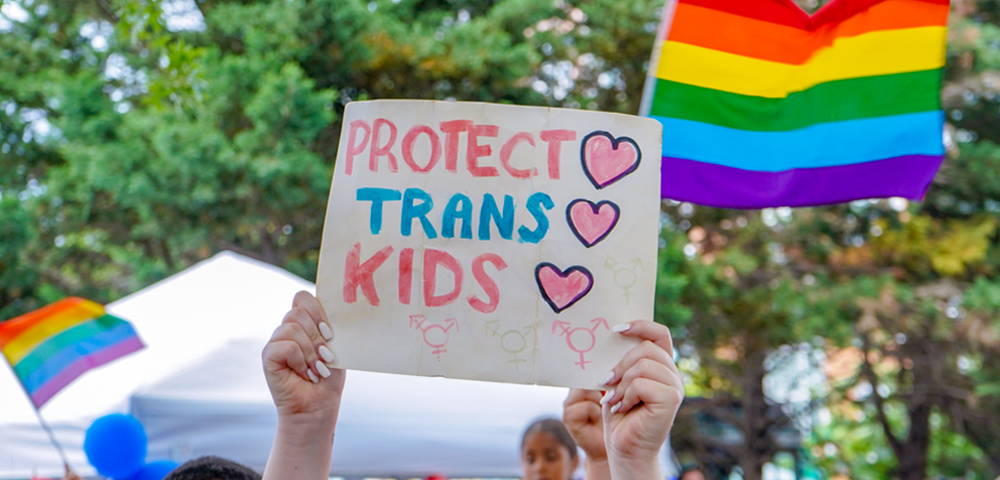
Same-sex marriage equality in California
While recently in San Francisco, I caught up with Rachel Biale, Acting Executive Director and Bay Area Regional Director of the Progressive Jewish Alliance (PJA), to discuss the PJA’s involvement in the campaign to defeat Proposition 8.
Proposition 8 (also known as the ballot which eliminates the right of same-sex couples to marry) is an attempt by a coalition of conservative activists professing to pro-tect family values to have the California State Constitution amended to expressly state that marriage must be between a man and woman. The campaign to have Proposition 8 included in the 2008 California general election ballot was precipitated by the Supreme Court of California’s decision earlier this year to overturn the ban on same-sex marriage on the basis that the ban contravened the Equal Protection Clause in the California State Constitution.
The American political system has a number of mechanisms to facilitate popular democracy which may seem quite alien to those schooled in the Australian political framework. One such mechanism allows citizens to petition a state government to pass statutes (which would otherwise require the approval of the State Assembly) or amend the state constitution by a referendum of state residents.
Rachel Biale argues that the sheer volume and complexity surrounding the usual proposition process can mean that ordinary citizens often struggle to understand the actual ramifications of the various proposals which come up for consideration on a regular basis. This has the unfortunate effect of giving large organised political lobby groups experienced in the art of political spin enormous influence.
The campaign to get Proposition 8 included in the California general election ballot in November is a case in point. Spearheaded by organised elements of the religious right which have become such a potent political force in recent times in America, the campaign aims to paint the effect of same-sex marriage as destructive of social norms.
It’s an argument that has galvanised a significant portion of the Californian constituency (approximately 750,000 signatures were received in relation to Proposition 8). Although it is viewed by many in the international community as a liberal state, Rachel Biale points out that California contains both pockets of progressive liberal thought such as the Bay area (which includes San Francisco) and parts of Los Angeles, but also large areas, such as Orange County, where deeply conservative views are held. This makes the imminent vote in California of great interest to the broader American population.
Although gay marriage is already permitted in Massachusetts, Rachel Biale explains that Massachusetts (which sits on the east coast of America) is seen as a uniformly liberal state. The unsuccessful attempt in Massachusetts to have marriage defined in the Massachusetts Constitution as between a man and woman in June 2007 did not register in the American political psyche to the same extent that the campaign about Proposition 8 seems to be doing. Often seen as the vanguard of political developments in America, California’s large and diverse population makes the Californian result a litmus test for the rest of the United States.
Also in practical effect, whether or not gay marriage is sanctioned in California will have an impact outside the state’s borders because California does not require residency for people to avail themselves of their marriage laws. California has already seen the influx of same-sex couples who reside in other states to be married in California. The non-recognition of such marriages by their home state or federal law in future could potentially give same-sex couples a legal cause of action. While same-sex marriage has been legal in Massachusetts since 2004, Massachusetts has required residency in the state before allowing same-sex couples to receive a Massachusetts marriage certificate. This requirement was only repealed less than a month ago.
The campaign in California has attracted funding from all around America. Both sides have received large donations from political lobby groups and private individuals, sometimes for amounts as high as $1 million. Rachel Biale estimates that both sides would have spent in excess of $30 million by the end of the campaign.
The PJA brings an interesting perspective to the campaign. As well as mobilising Jewish religious organisations and the broader Jewish community in California (which has the highest Jewish population in America after New York -“ it is estimated that approximately 1.2 million Californians identify as Jewish) behind the campaign to defeat Proposition 8, the PJA works to challenge the fact that a religious worldview necessitates opposition to same-sex marriage. Rachel Biale estimates that significantly more than 50% of rabbis in California, some of whom are openly gay or lesbian, support gay marriage.
Also, the PJA advocates a number of social justice issues, such as immigrant rights and the abolition of the death penalty. Rachel Biale feels that having general social justice groups such as the PJA involved in the campaign (otherwise run by gay lobby and activist groups) firmly situates same-sex marriage as a general human rights issue which warrants broader attention.
It is difficult to predict which way the vote will go in November. A poll done shortly after the Supreme Court decision in May found that 51% of Californians supported same-sex marriage. This was the first time a poll found a majority of Californians in support. Rachel Biale believes this result can be attributed to a confluence of factors, including the fact that the poll used a number of mechanisms to ascertain younger voters’ views (such as canvassing opinion by ringing mobile numbers) and the influence of the Supreme Court of California.
However, the PJA and other groups that are active in the campaign are not relying upon the poll result to rest on their laurels. The sheer scope of the political campaign is immediately striking, especially for those of us in Australia who are only recently witnessing the flexing of the GLBTI community’s political muscle. The result will be watched closely in Australia, especially in light of the Rudd Government’s craven refusal to take on the Christian lobby on this issue.










It is criminal how LGBT familes, with and without children, have to “wait patiently” for the SAME legal protections that are handed out LIKE CANDY to heterosexuals. For many in the LGBT community in the United States, we have lost all patience with both voters and politicians when it comes to JUSTICE and COMMON DECENCY concerning our families, so we are doing what we CAN do – withholding tax until we are treated EQUALLY. Those interested in joining this fight can GOOGLE “Gay Tax Protest” to find out about my own protest, and find links to others.
This Thursday, August 14th, from 5:30 p.m – 8:30 p.m. at 2020 Main Street, Irvine, California:
ACTION ALERT: Tell the Right-Wing Consultants NO to Prop 8!
http://www.theliberaloc.com/2008/08/13/action-alert-tell-the-right-wing-consultants-no-to-prop-8/